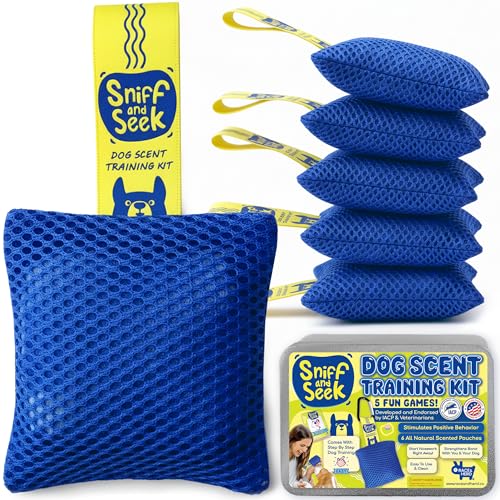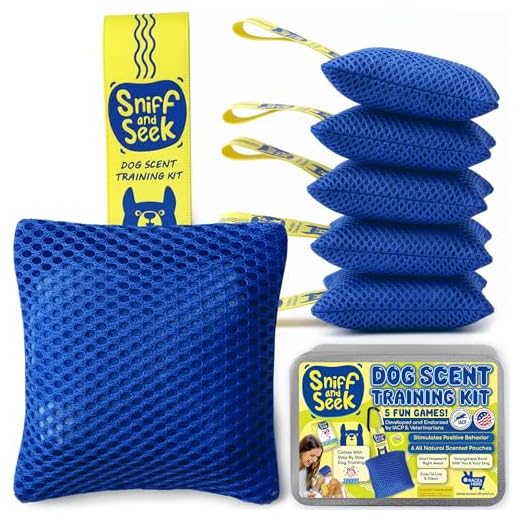


While close interactions with pets can be heartwarming, it’s essential to consider the implications of their affection. If you’re wondering whether allowing your furry friend to express their love through slobbery kisses is risky, the answer leans towards caution. Many experts suggest limiting such behaviours to protect against possible health concerns.
Research indicates that a dog’s mouth can carry a variety of bacteria and parasites, some of which may pose risks to people, particularly those with weakened immune systems. For instance, certain strains of Salmonella and E. coli can be transmitted through saliva, leading to gastrointestinal issues. To minimise exposure, maintaining good hygiene practices, such as washing hands after playtime, is advisable.
Additionally, not all canine companions are up-to-date with vaccinations or regular veterinary check-ups, which can further heighten the risk of transmission of infections. Monitoring your pet’s health and ensuring they receive routine care is a responsible approach to maintaining a safe environment for both you and your four-legged friend.
Ultimately, while it’s natural to enjoy the affection of a beloved companion, exercising caution and prioritising hygiene can prevent potential health issues. Balancing love and safety is key to a happy relationship with your pet.
Assessing the Risks of Canine Saliva
It’s wise to be cautious when it comes to interactions involving canine saliva. While most canines carry bacteria that are harmless to them, some can transmit pathogens that may affect people. For instance, certain strains can cause gastrointestinal issues. It’s best to avoid direct contact with any open wounds or mucous membranes, such as your mouth or eyes, to minimise risks.
Hygiene Practices
Regular grooming and maintaining a clean environment are key. Bathing your pet frequently can help reduce the presence of harmful bacteria. Additionally, ensuring their oral health through proper dental care will limit the risk of transmitting any harmful bacteria. If you’re ever unsure about your furry companion’s health, consult a vet for advice.
Nutrition and Overall Health
A balanced diet contributes significantly to a pet’s overall health, reducing the likelihood of transmitting infections. Consider high-quality options, such as the best high protein dog food for weight loss, which can enhance their immune system. A healthy pet is less likely to carry harmful bacteria in their mouth, promoting safer interactions.
Understanding the Bacteria in Canine Saliva
Canine saliva contains a variety of bacteria, some of which can be harmful to people. Here’s what you should know:
- Types of Bacteria: Notable bacteria include Pasteurella multocida, Capnocytophaga canimorsus, and Staphylococcus spp.. While these are typically harmless to the canine, they can cause infections in individuals with compromised immune systems.
- Transmission Risks: Direct contact with saliva may lead to transmission of bacteria through cuts, scrapes, or open wounds. It’s wise to be cautious if you have any skin breaks.
- Allergic Reactions: Some individuals might experience allergic reactions to proteins in saliva, leading to irritation or rashes. Monitoring for any unusual symptoms after contact is advisable.
- Dental Health: Canine saliva contains enzymes that can be beneficial for their dental health but could also contribute to plaque formation if contact is frequent.
Observing hygiene practices, such as washing hands after interaction, can help mitigate risks. If you notice any signs of infection or unusual reactions, consult a healthcare provider promptly.
Health Risks Associated with Dog Licks
Direct contact with saliva from canines can pose certain health concerns. While many people enjoy the affection shown by their pets, it is crucial to be aware of potential risks linked to these interactions. Pathogens can be present in a canine’s saliva, leading to various illnesses if transmitted to individuals.
Bacterial Infections
One of the primary risks is exposure to bacteria. Certain strains, such as Pasteurella multocida and Bartonella henselae, can be transferred through saliva. These microorganisms may cause infections, especially in individuals with compromised immune systems. Symptoms can range from mild skin irritations to severe conditions requiring medical intervention.
Parasites and Other Pathogens
Besides bacteria, parasites like Giardia and Toxocara can also be present. These organisms may lead to gastrointestinal issues or other health complications. Understanding the potential for transmission is vital, particularly for those with young children or weakened immune responses. Regular veterinary check-ups and vaccinations significantly reduce the risk of these pathogens being present in your furry companion.
Staying informed about the health status of a pet, alongside maintaining good hygiene practices, can help mitigate the risks associated with saliva exposure. Limit contact with the mouth area and encourage alternative forms of affection, such as gentle petting or playing, to ensure a healthy relationship with your beloved companion.
When Canines’ Affection May Signal Health Concerns
If a furry friend begins to excessively show affection through their tongue, it could be a sign of underlying issues. Pay attention to changes in behaviour, especially if the display becomes more frequent than usual. This might indicate stress, anxiety, or a medical condition.
In some cases, an increase in this behaviour may stem from gastrointestinal discomfort. If a pet is feeling unwell, they might seek comfort by engaging in familiar actions. Watch for signs like vomiting, lethargy, or changes in appetite alongside the affectionate actions.
Allergies could also play a role. Pets often react to allergens by licking their skin and, subsequently, those they love. If you notice skin irritation or excessive scratching, it might be worth consulting a vet to identify potential allergens.
Oral health issues should not be overlooked. Persistent affection could signal dental pain or infection, prompting the animal to seek relief. Regular check-ups can help catch these problems early, ensuring a healthy mouth for your beloved companion.
Lastly, if there are any unusual substances on their tongue, it’s essential to investigate further. Exposure to toxic plants, chemicals, or foreign objects might lead to concerning behaviours. Keeping an eye on what your pet has access to is vital for their overall health.
Safe Practices for Canine and Human Interaction
To minimise any potential risks during interactions, always wash your hands thoroughly after petting your furry companion. This simple act helps reduce the transmission of bacteria that may be present in their saliva. I’ve made it a habit to keep hand sanitiser nearby, especially after playtime or cuddling sessions.
Establishing Boundaries
It’s essential to set clear boundaries. Train your pet to refrain from excessive closeness during meal times or when they’re feeling anxious. I noticed that my dog tends to become overly affectionate when I’m eating, which can lead to unwanted behaviours. Teaching commands like “stay” or “off” can create a more comfortable environment for both of you.
Regular Health Check-ups
Schedule routine veterinary visits to ensure your pet is in good health. Regular check-ups can help identify any underlying issues that could affect interactions. I learned this the hard way when my dog had an undiagnosed dental issue that increased his oral bacteria levels. Keeping up with vaccinations and dental care is vital for both their health and yours.
How to Manage Your Dog’s Licking Behaviour
Redirecting attention is a straightforward method to curb excessive mouthing. When I noticed my pup frequently reaching for my hands, I started carrying toys. Whenever he would try to engage with me by licking, I’d present a toy instead. This not only distracted him but also provided an outlet for his energy.
Establish Boundaries
Consistency is key. I implemented a simple command like “no” when my four-legged friend began to lick. Each time he obeyed and stopped, I rewarded him with praise or a treat. Over time, he learned that licking was not the best way to get my attention.
Regular Exercise and Mental Stimulation
Physical activity plays a significant role in reducing unwanted behaviours. Long walks, playtime in the park, or engaging games like fetch can expend excess energy. I noticed a remarkable drop in my dog’s excessive licking after we introduced more structured playtime into our daily routine.
| Strategy | Description |
|---|---|
| Redirecting Attention | Offer toys when licking occurs to distract and engage. |
| Establish Boundaries | Use commands and rewards to discourage licking behaviour. |
| Regular Exercise | Incorporate physical activities to expend energy and reduce licking. |
Monitoring stress levels is equally important. I found that my pet tended to lick more when he was anxious. Creating a calm environment with relaxing music or designated quiet spaces helped him feel more secure, which in turn reduced the frequency of his licking.
If the behaviour persists despite these efforts, consulting a veterinarian or a professional trainer can provide additional insights tailored to your pet’s needs.
FAQ:
Is it safe for humans if a dog licks them?
In general, dog licking is considered safe for humans, especially if the dog is healthy and well-cared for. Dogs often lick their owners as a sign of affection, and for most people, this behaviour poses little to no risk. However, there are some precautions to consider, as dogs can carry bacteria and parasites that may be transmitted through their saliva. Keeping your dog’s health in check with regular vet visits and vaccinations can help minimise these risks.
Are there any health risks associated with dog saliva?
While many dogs have saliva that is harmless to humans, there are potential health risks. Dog saliva can contain bacteria such as Pasteurella, which can cause infections, especially if there are open wounds or cuts on the skin. Additionally, dogs can carry parasites like Giardia or worms, which may be transmitted through licking. It’s advisable to wash your hands after interacting closely with your dog, especially if they have licked you, to reduce any potential health risks.
Can dog licking cause allergies in humans?
For some individuals, dog licking may trigger allergic reactions. This is often due to allergens present in a dog’s saliva, dander, or urine rather than the licking itself. Symptoms can include skin rashes, itching, or respiratory issues. If you suspect that you are allergic to dogs, it might be helpful to consult with a healthcare professional for allergy testing and advice on managing symptoms.
What should I do if my dog licks my face?
If your dog licks your face, it’s usually a sign of affection, but it’s important to consider hygiene. If your dog is healthy and up to date with vaccinations, it’s generally safe; however, if you’re concerned about germs, it’s a good practice to wash your face afterward. If your dog has been exposed to dirt or any potentially harmful substances, it’s best to avoid close contact until you can clean them up. Always monitor for any signs of infection or irritation on your skin.
How can I prevent my dog from licking too much?
If your dog has a habit of excessive licking, it may be beneficial to address the behaviour through training. Providing alternative forms of affection, such as petting or playing, can help redirect their licking. Additionally, ensuring that your dog is mentally stimulated and physically active can reduce boredom-related licking. If the behaviour persists, consulting a veterinarian or a professional dog trainer might be necessary to rule out any underlying health issues or to develop a more tailored training plan.
Is it safe for humans to let dogs lick their skin or face?
Letting dogs lick your skin or face can pose some health risks, although many dog owners do it without issues. Dogs’ mouths contain bacteria, some of which can be harmful to humans. While most healthy dogs are not carriers of dangerous pathogens, there is still a chance of transmitting infections, especially if you have open wounds or compromised skin. It is advisable to wash the area with soap and water after your dog licks you and to avoid allowing them to lick your face or any cuts. Additionally, be cautious if your dog has been eating something questionable or has health issues themselves.






